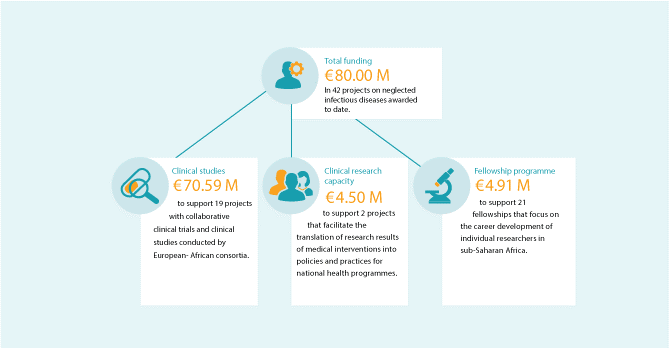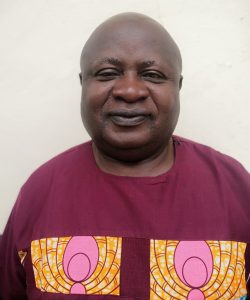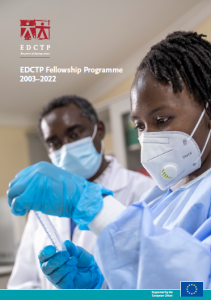World NTD Day 2023: Investing to end the neglect
Neglected Infectious Diseases (NIDs, also known as Neglected Tropical Diseases) affect an estimated 1.2 billion people worldwide. NIDs are complex and often related to local and environmental conditions. To promote long-term perspective and strong country ownership in reducing the burden of NIDs, EDCTP invests in developing local capacity to complement its support for clinical trials and product-focused implementation research.
“Transformative capacity development in the fight against Neglected Infectious Diseases hinges heavily on developing local scientific excellence and leadership. Investment in scientific champions with a vision to develop multidisciplinary, gender-sensitive research teams with diversified talent, that address locally relevant research and enriched with international cooperation, is critical and EDCTP embraces this approach.”
Dr Michael Makanga, EDCTP Executive Director
In 2014, EDCTP added NIDs to the scope of its second programme. Our research funding focuses on protecting the most vulnerable groups in society such as infants, children, adolescents, pregnant women and individuals with co-infections and co-morbidities and ensuring that they benefit from new medical interventions. In addition, EDCTP supports projects that facilitate the translation of research results into policy and practice, as well as fellowships for African researchers. In total, €80.00 M of EDCTP funding has been dedicated to reducing the burden of NID’s in sub-Saharan Africa.
Spotlight on Fellow: Professor Samuel Wanji
Capacity development is a core EDCTP activity, complementing its support for clinical trials and product-focused implementation research. Effective capacity development requires a long-term perspective, an integrated system-wide approach, and strong partnerships with host countries to ensure sustainability. Guided by these principles, EDCTP is making a lasting contribution to the capacity of countries in sub-Saharan Africa. Apart from the capacity development investments in the research & innovation and the coordination & support grants, EDCTP invests in human capacity development through an extensive fellowship programme.
We asked EDCTP Senior Fellow Plus Professor Samuel Wanji from University of Buea, Cameroon, how EDCTP funding is helping advance his research into the neglected group of filarial diseases (a disabling worm infection), and how it’s helping to build capacity in infectious diseases in Africa in general:
“My future career goals are to develop a strong clinical research platform that can be used by scientists from universities, research institutes and pharmaceutical companies to test drugs for humans.”
EDCTP Fellowship Programme 2003-2022
Despite being home to 15% of the global population and accounting for 25% of the global disease burden, Africa produces only around 2% of global research outputs. This reflects a limited health research base: Africa as a whole has only 198 scientists per million population, far below the global average of approximately 1500 per million population.
Therefore, apart from the capacity development investments in the research & innovation and the coordination & support grants, EDCTP invests in human capacity development through an extensive fellowship programme.
During EDCTP1 (2003–2015), the programme supported the long-term training of 516 African
researchers. Graduate and postgraduate studentships were initially funded through personal support schemes before being absorbed into grants for multi-centre clinical projects. A total of 51 Senior Fellowships and five Career Development Fellowships were awarded. During EDCTP1, personal support funding also included funding for postdoctoral researchers (32), PhD students (172), Master’s students (242), undergraduate students (7) and medical diploma students (7), amounting to €13.3m out of a total investment of €377.7m (3.5%).
During EDCTP2 (2014–2022), the programme has supported the long-term training of 1080 African researchers (fellows and other long-term trainees). The programme saw a significant expansion of fellowship funding with about five-fold increase, focused on Senior Fellowships, Career Development Fellowships, Preparatory Fellowships and Clinical Research & Development Fellowships, and the specialist fellowship schemes discussed above.
In total, 45 Senior Fellowships were awarded, alongside 125 Career Development Fellowships, and 35 other fellowships, bringing the total number awarded to 215. The total EDCTP investment over this period was €52.4m
More information
- WHO World NTD Day 2023 website
- EDCTP NID project portfolio 2014-2021
- Report: EDCTP Fellowship Programme 2003–2022
- EDCTP video ‘Neglected infectious diseases: the urgency of funding research’ (2019)



